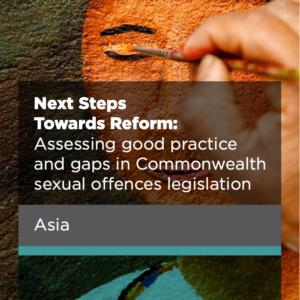No corroboration required. Legislation setting out rules of evidence in criminal proceedings for sexual assault should state that no corroboration by a third party of the complainant’s testimony is required.
The rule on corroboration is a common law exception to the hearsay rule imported into many Commonwealth countries by the British colonists. The rule requires a third party to corroborate a complaint of sexual assault. The rule is clearly discriminatory. It is often not applicable to other criminal offences, including those that occur in private, and it is based on the damaging and false myth that women and girls lie about rape and other sexual assault.
In a case on appeal from Grenada, the Privy Council held that there is no requirement at common law for corroboration in sexual assault cases and that it was up to the judge to determine if it was necessary to warn the jury about the reliability of any uncorroborated evidence (R v Gilbert (2002) 61 WIR 174). A number of courts around the Commonwealth have made similar findings and some Commonwealth countries have expressly abolished the rule in their legislation.
Common law rules of evidence, including on corroboration of sexual offences, are not assessed in this research. Where legislation does not expressly exclude corroboration in relation to sexual offences, regardless of the common law position in that country, the law does not meet this good practice criterion. Good practice sexual offences laws for the purpose of this research require its express abolition by legislation.



